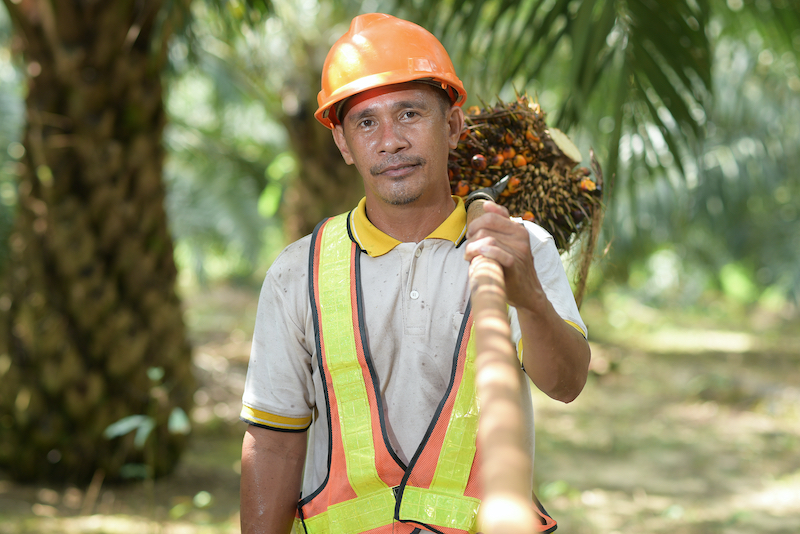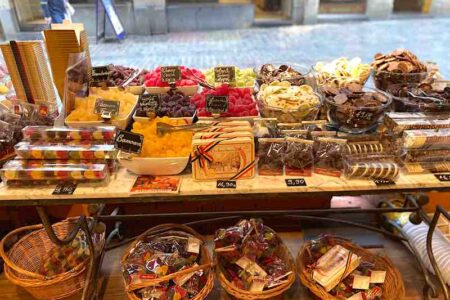Ferrero drives forward three-year plan for delivering sustainable Malaysian palm oil supplies

pic: Shutterstock
Ferrero is initiating results of a major study in Malaysia with the Sustainable Agriculture Network (SAN), that have paved way for a new three plan delivering solutions for biodiverse palm oil production, writes Neill Barston.
As the company explained, the venture began with the initial work done in 2020, and has been focused at farm level for conservation methods, piloting best practice habitat designs, as well as integrated pest management (IPM) to deliver eco-friendly supplies for the company’s product ranges, including some of its key confectionery brands.
The use of palm oils for the food market, including major sweets and snacks brands, has attracted controversy in light of animal and environmental charities expressing concern about its prevalence – which industry analysts assert can be farmed positively with sufficient focus on sustainable harvesting. However, Ferrero has recently emerged in a WWF study as among the best performing businesses in the sector in terms of its focus on traceability and overall quality of farming practices.
According to the company, the project’s main objective is to propose a habitat design for “beneficial insects” that can contribute to pest control by preying on herbivorous insect pests which harm oil palm production. Being implemented within a framework of effective IPM practices, another goal is also to identify lower risk pesticides as alternatives to hazardous chemicals, for the benefit of both workers and the environment.
Under the three-year plan, Ferrero said it aims to optimise its palm oil programme across an increased range of farms, as well as planning to expand its scheme as widely as possible in the region. For the final year, it said that it intended to intensify its solutions ‘at a landscape level’ to generate maximum impact.
Notably, in parallel, the project will work to identify and implement less harmful chemical pesticide alternatives, as well as ways to leverage technological tools to empower farmers and optimise their work.
This represents yet another step on our responsible palm oil sourcing journey in supporting initiatives that protect biodiversity and promote smallholder resilience, as outlined in the Ferrero Palm Oil Charter.
Coordinated by SAN, the international team of expert ecotoxicologists, entomologists and botanists involved include Wild Asia, Oregon State University, Srum Agroecologia, and Putra Malaysia University (UPM). This project responds to the broader industry’s issue of synthetic pesticide, often used in palm oil plantations to protect oil palms and their fruit bunches from pests that could spoil the crop and render it unusable for production. Indeed, if pests strike at a large scale, an entire plantation could lose a production cycle’s work, create potential supply shortages and in turn have an adverse effect on the economic wellbeing of farmers and their communities.
As the business noted, it first set up the study, in March 2021, where the Ferrero-SAN pilot project’s research team visited four oil palm plantations, mainly smallholders, and took two key steps:
First, agricultural practices were explored and mapped out. The team discovered that plant diversity significantly influences beneficial insect variety and recorded the presence of crop-damaging pests like bagworms, rhinoceros beetles and rats. Many issues tied to small and medium farmer practices were also found, including lack of access to basic information on agrochemical usage and alternatives, a full understanding of soil conservation best practices (including archival record-taking), and missing adequate waste management facilities. As such, an important opportunity for education and upskilling exists.
Secondly, a comprehensive survey of insects and plants was performed. This helped to better understand the farm ecosystem, leading to the identification of 89 insect and 121 plant beneficial species. For example, it was noted that greater fern diversity provided more refuge and water for “assassin” bugs like the Cosmolestes picticipes which prey on pests like the nettle caterpillar. Today, the observed natural barriers created by farmers are composed of four non-native, exotic plant species along one strip to guard pests from reaching oil palms. As such, the positive effects of taking a more diversified, mixed planting approach will be explored through “habitat island” blocks of 15-20 plant species distributed across the farms.



